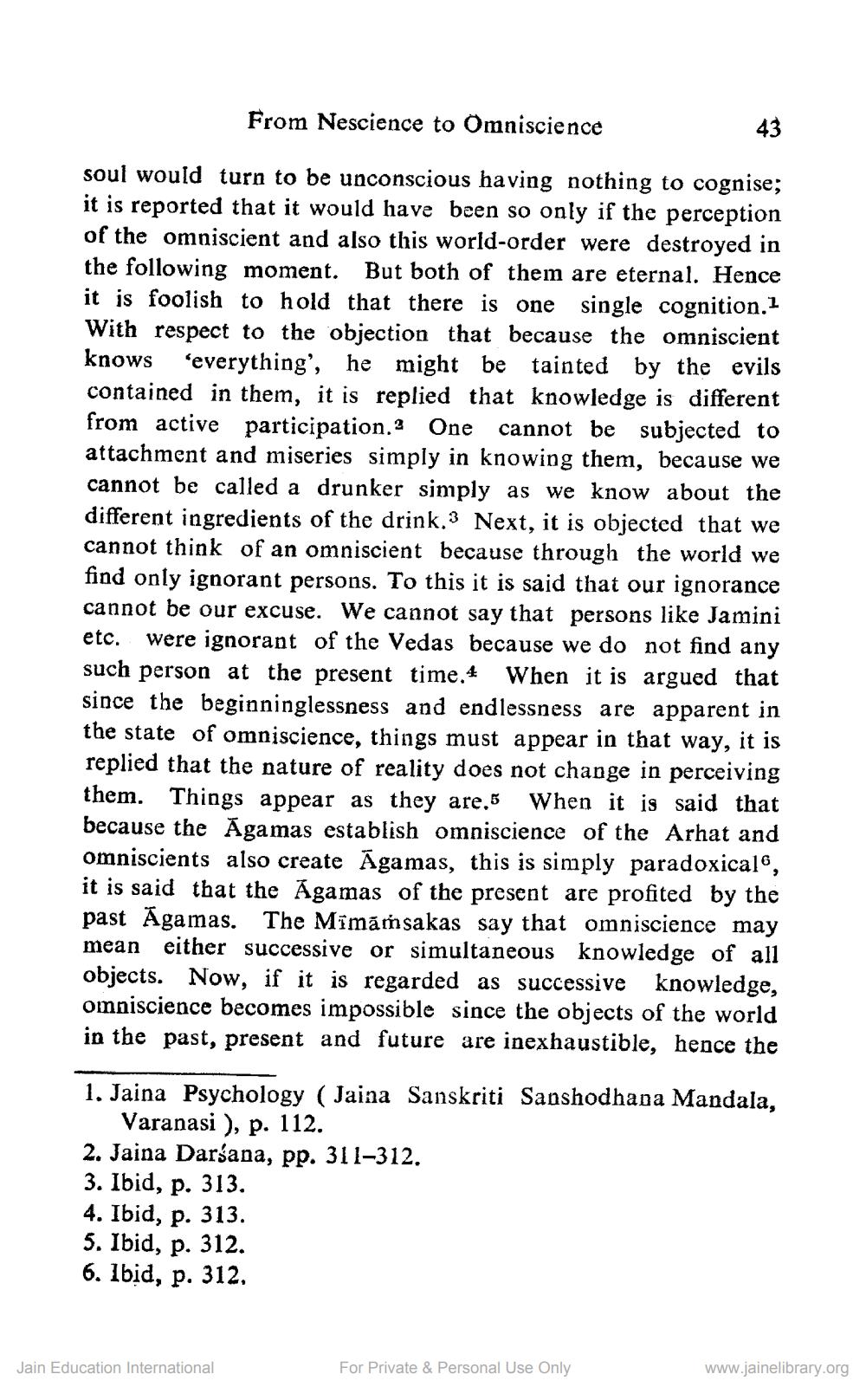________________
From Nescience to Omniscience
43
soul would turn to be unconscious having nothing to cognise; it is reported that it would have been so only if the perception of the omniscient and also this world-order were destroyed in the following moment. But both of them are eternal. Hence it is foolish to hold that there is one single cognition.1 With respect to the objection that because the omniscient knows everything', he might be tainted by the evils contained in them, it is replied that knowledge is different from active participation. One cannot be subjected to attachment and miseries simply in knowing them, because we cannot be called a drunker simply as we know about the different ingredients of the drink.3 Next, it is objected that we cannot think of an omniscient because through the world we find only ignorant persons. To this it is said that our ignorance cannot be our excuse. We cannot say that persons like Jamini etc. were ignorant of the Vedas because we do not find any such person at the present time.4 When it is argued that since the beginninglessness and endlessness are apparent in the state of omniscience, things must appear in that way, it is replied that the nature of reality does not change in perceiving them. Things appear as they are.5 When it is said that because the Agamas establish omniscience of the Arhat and omniscients also create Āgamas, this is simply paradoxicale, it is said that the Ágamas of the present are profited by the past Āgamas. The Mimāṁsakas say that omniscience may mean either successive or simultaneous knowledge of all objects. Now, if it is regarded as successive knowledge, omniscience becomes impossible since the objects of the world in the past, present and future are inexhaustible, hence the
1. Jaina Psychology (Jaina Sanskriti Sanshodhana Mandala,
Varanasi ), p. 112. 2. Jaina Darsana, pp. 311-312. 3. Ibid, p. 313. 4. Ibid, p. 313. 5. Ibid, p. 312. 6. Ibid, p. 312,
For Private & Personal Use Only
Jain Education International
www.jainelibrary.org




